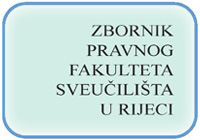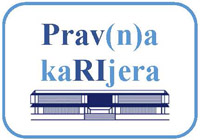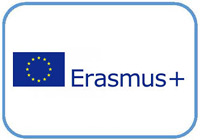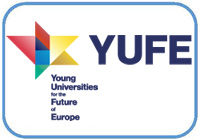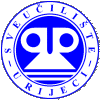Reasons for launching the Study Programme
A modern, rational, effective and efficient public administration is a necessary prerequisite for the functioning of each national, regional or local community. Public administration faces many complex activities of public interest on a daily basis, which must be performed in accordance with the law and in a quality manner so that the standard of living of its inhabitants in the area of its activity were as high as possible, and the availability of public services to these individuals as simple as possible. In order to be able to respond to the relatively complex and changing social demands, public administration, i.e. its employed officials, should be well familiarized with the general needs of the citizens and entrepreneurs, and capable of taking timely measures that will contribute to the economic prosperity, but also to the use of social and other rights of the citizens while also meeting the social needs of the community.
Thereby, with the aim of protecting the rights and legal interests of individuals, but also the general interest of the community, public administration is in its work connected to the principle of legality, pursuant to which it applies in its functioning a number of national legislations governing very divergent administrative areas. The number of legal regulations governing the conduct of public administration has been significantly increased with the implementation of international legal sources, and particularly the part regarding the European Union Acquis into the domestic legal system. Unlawful conduct of the administration leads to significant anomalies in the society, which is reflected in the violation of the subjective rights of individuals, but also causes considerable damage to the community in which it operates. Therefore a lawful, proper, efficient and economical performance of implemented tasks at all government levels is a prerogative of development of any modern and democratic country.
However, the quality of public administration today in Croatia cannot be assessed as satisfactory. In the reports on the condition of public administration made in previous years, competent authorities of the European Union have established that the Republic of Croatia should establish as soon as possible such a public administration which is independent of political power, to professionalize the work of public officers and to improve the educational system of public administration, as well as the training system for the existing administrative officers. As an important reason for the lack of quality of organization and work of the Croatian public administration in Croatia, in the Progress Report by the European Commission submitted to the Council of the European Union and the European Parliament in 2008, the problem of higher education of civil servants is emphasized and further steps should be taken in this direction. This statement of the Commission is based primarily on the fact that in the Croatian state administration there are more than 50% of employees with a secondary education degree, and those officials who have college or university degrees often do not have the right profession. In local and regional government structures professional qualifications show even worse results.
Therefore well trained public officials, i.e. people who work in state administration bodies, bodies of local and regional governments, as well as legal persons with public authorities, who carry out activities that the law and regulations have established as public service, are a necessary prerequisite for a lawful, proper, efficient and economical conduct of public administration. Training public officials for legal, orderly, efficient and economical work is conducted within the Administrative Study which is carried out at several Croatian universities and polytechnics, and upon whose completion the participants acquire general administrative knowledge necessary to administrative generalists. However, the acquisition of general administrative knowledge is not sufficient to achieve this objective. Public officials are therefore expected to conduct lifelong development and improvement of their work abilities, and in particular of the specific knowledge focused on the special administrative areas in which these people operate. This idea of a lifelong, specialist education today in Croatia is usually carried out through a variety of seminars, workshops and counselling. However, a systematic upgrading of general knowledge and the acquisition of specific knowledge is the most complete model of developing knowledge, skills and competences required to improve the quality of public administration. This has also been recognized by the current Law on Science and Higher Education, and upon the completion of the Professional Study it predicts the possibility of continuing education at the Graduate Study. Consequently, Specialist Graduate Professional Study in Public Administration would enable the Professional Undergraduates of Public Administration a systematic and comprehensive acquisition of knowledge, skills and competences from legal disciplines of public administration, whereby the current lack of academic programmes adjusted to the specific needs of professionals in the public sector in Primorsko-goranska, Istarska and Ličko-senjska Counties would be filled.
The Specialist Study in Public Administration further contributes to unifying the standards and the quality of the Croatian higher educational system of Public Administration with the European educational systems of Public Administration, which was established already in 1995 through one of the conditions for the accession of new Member States to the European Union. This Specialist Study also supports the national system of academic and professional titles established with the Civil Service Jobs Classification Regulation (Official Gazette no. 77/07, 13/08, 81/08), and with other regulations adopted in recent years, which have opened up the possibility of hiring professional specialists of public administration at an adequate number of jobs in state administration. It also goes in hand with the State Administration Reform Strategyfor the period 2008-2011, adopted by the Croatian Government in March 2008, which insists on the education and training of state officials through the permanent gaining of new knowledge, skills and competences related to management in the public sector, other administrative-technical knowledge and skills, awareness of political and economic problems and the acquisition of legal, financial and other knowledge, skills and competences necessary for an efficient performance of administrative tasks at all levels of state administration.








